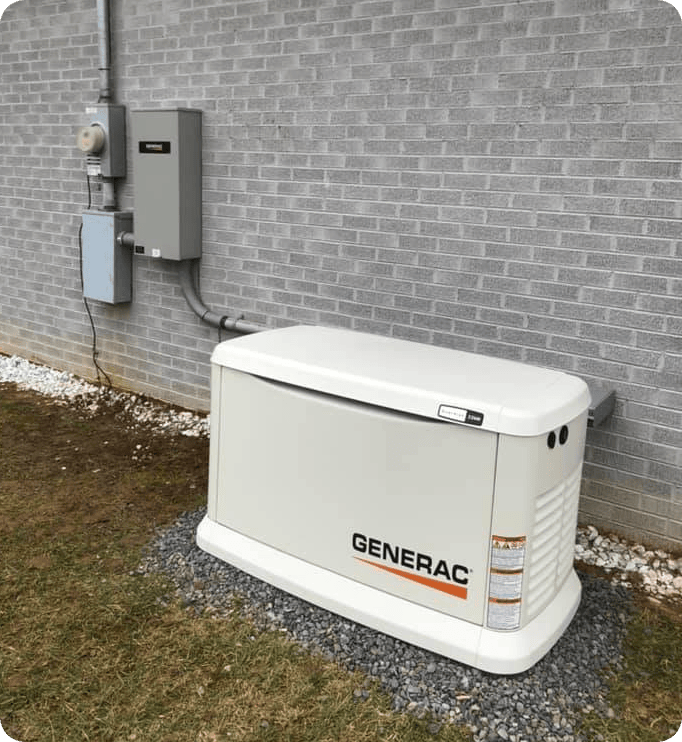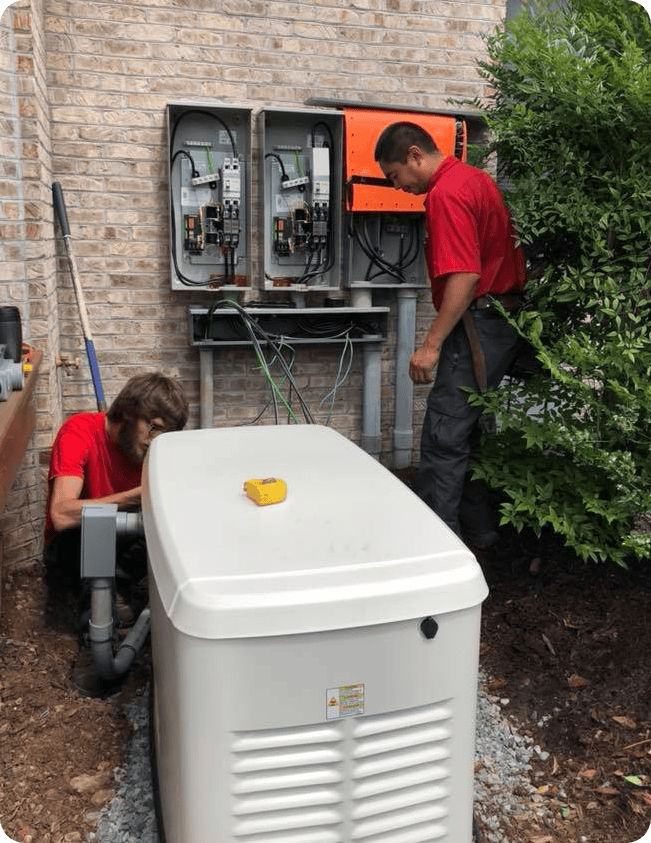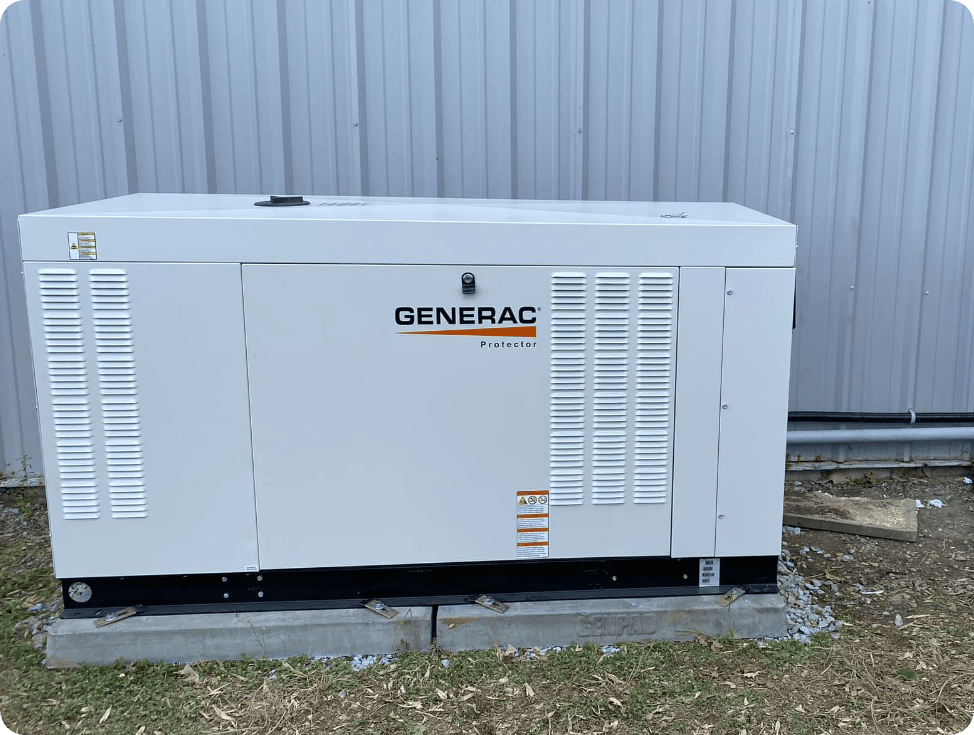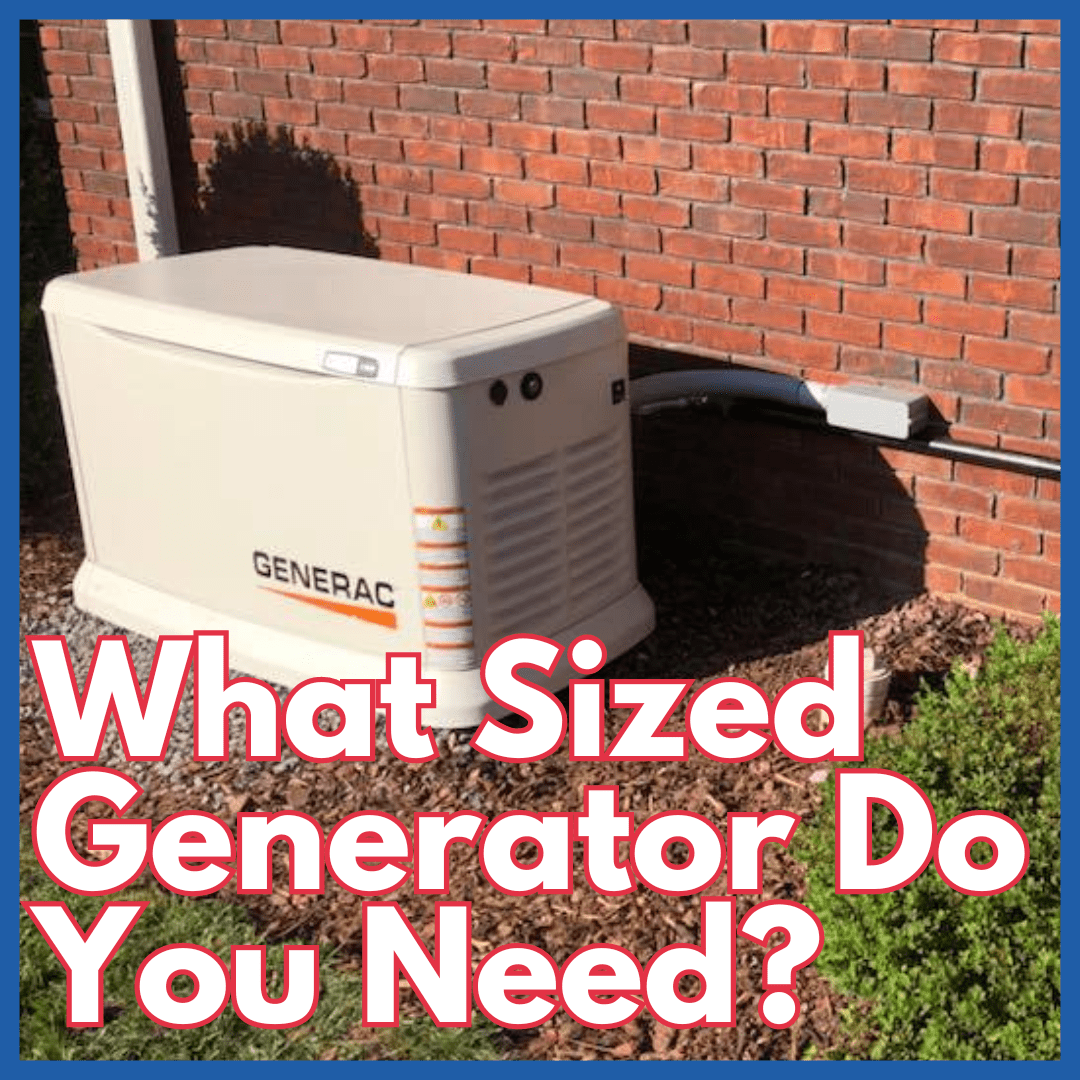What Size Generator Do I Need to Power My Home?
 One of the most common questions homeowners ask when considering a backup power source is, “What size generator do I need to power my home?” The answer varies depending on individual needs, preferences, and the total wattage of devices you want to power.
One of the most common questions homeowners ask when considering a backup power source is, “What size generator do I need to power my home?” The answer varies depending on individual needs, preferences, and the total wattage of devices you want to power.
I’ve worked with a number of generators in the Chilhowie, VA area over the years, and know how important they can be for a home. As a home solutions advisor here at Complete Comfort, it’s my job to make sure I provide homeowners with all the suggestions for the best ways to keep their homes comfortable.
In this article we’ll get a bit more into a few topics:
- How big a generator do you need?
- Essential considerations for picking a generator.
- What size generator do you need?
Most people just think about the TV or the lights going off during a power outage, but also consider you’ll lose air conditioning if it’s the summer, and your food may go bad in the refrigerator if the power doesn’t come back on quickly. If you are considering installing a generator for your home, give us a call at (276) 690-9222, or click here to contact us online!
How Big A Generator Do I Need? What to Consider
Identifying Your Power Requirements
Before asking “How big a generator do I need?”, it’s essential to determine the devices and systems you wish to power. Would you like a backup power source for only essential systems like heating or refrigeration? Or do you want to maintain your home’s normal functions, including powering non-essential devices like entertainment systems? Depending on what you want to power, your choices here will play a significant role in determining the generator size you need.
Assessing Total Wattage Needs
After identifying the devices and systems you wish to power, calculate their combined wattage. Most appliances have their wattage listed on the label or in the user manual. Once you’ve tallied the wattage for all devices, it’s recommended to add an additional 20% to the total to cater for potential surges or unexpected additions.
 Making the Right Size Choice
Making the Right Size Choice
Armed with your total wattage needs, you can now answer the question, “What size generator do I need?” The size here refers to the generator’s output, often expressed in watts or kilowatts. It’s always a good idea to choose a generator that slightly exceeds your estimated wattage needs to ensure all devices run seamlessly.
If you are having trouble with any of this, talk to a professional to get a recommendation. Most contractors don’t expect a homeowner to know EXACTLY what they want when they reach out. There is usually a bit of assessment and decision-making when it comes to the generator they decide to install. If you live in the Chilhowie, VA area, or in the surrounding neighborhoods, we can come out and help you figure out which generator fits your home best!
Essential Considerations for Picking a Generator
Here are a few more things you’ll want to think about and ask your contractor about when it comes to picking a generator for your home.
Wattage Requirements
This has been emphasized already, but it’s worth reiterating. Always base your generator size choice on your total wattage requirements. Overlooking this factor can lead to inefficiencies or potential damage to your appliances. Installing a generator that won’t get the job done is a waste of your money.
Preferred Fuel Option
Generators can run on a variety of fuels, including gasoline, diesel, propane, and natural gas. Your choice will depend on fuel availability, storage possibilities, and your budget. Some fuels are more efficient than others, so consider long-term costs when making a choice.
Generator’s Physical Dimensions
The actual size of the generator is another consideration. Ensure you have ample space to store and operate it. Larger generators may also require reinforced platforms or specific storage sheds. This is another thing your contractor should be able to walk you through!
Type and Model of Generator
There are stationary and portable generators. Stationary generators are usually larger, more powerful, and designed to provide power for longer durations. Portable generators are mobile, ideal for temporary power needs, or for activities such as camping. We specialize in the stationary generator that can take care of your whole home during a power outage.
Noise Emissions and Impact
Generators can be noisy. Consider the noise level that’s acceptable for your environment. Some modern generators come with noise-reducing features, ensuring minimal disruption to you and your neighbors.
What Size Generator Do I Need?: More FAQs
Can a generator be too big for a house?
Yes, a generator can be too big. Oversizing leads to fuel inefficiency, as the generator operates below its optimal load. It’s also a waste of resources, as you might end up paying for capacity you don’t need. Your contractor should be able to help suggest the correctly sized generator.
Can I run an air conditioner with a generator?
Yes, you can run an air conditioner with a generator. However, air conditioners typically have high wattage requirements, especially during startup. Ensure your generator has the capacity to handle the load without being strained.
How do I calculate what size generator I need?

To calculate the size:
- List all devices you want to power.
- Determine the wattage of each device (usually found on labels or manuals).
- Sum up the total wattage.
- Add 20% to this total to cater for unexpected surges or additions.
- Choose a generator whose output meets or slightly exceeds this calculated need.
In conclusion, when seeking to answer “What size generator do I need to power my home?”, you can do a little research on your own to estimate what you need, but a contractor will be able to help as well. Make sure that you consider both your present and future needs, along with other factors like fuel type and physical dimensions, to make a choice that serves you efficiently and effectively.


